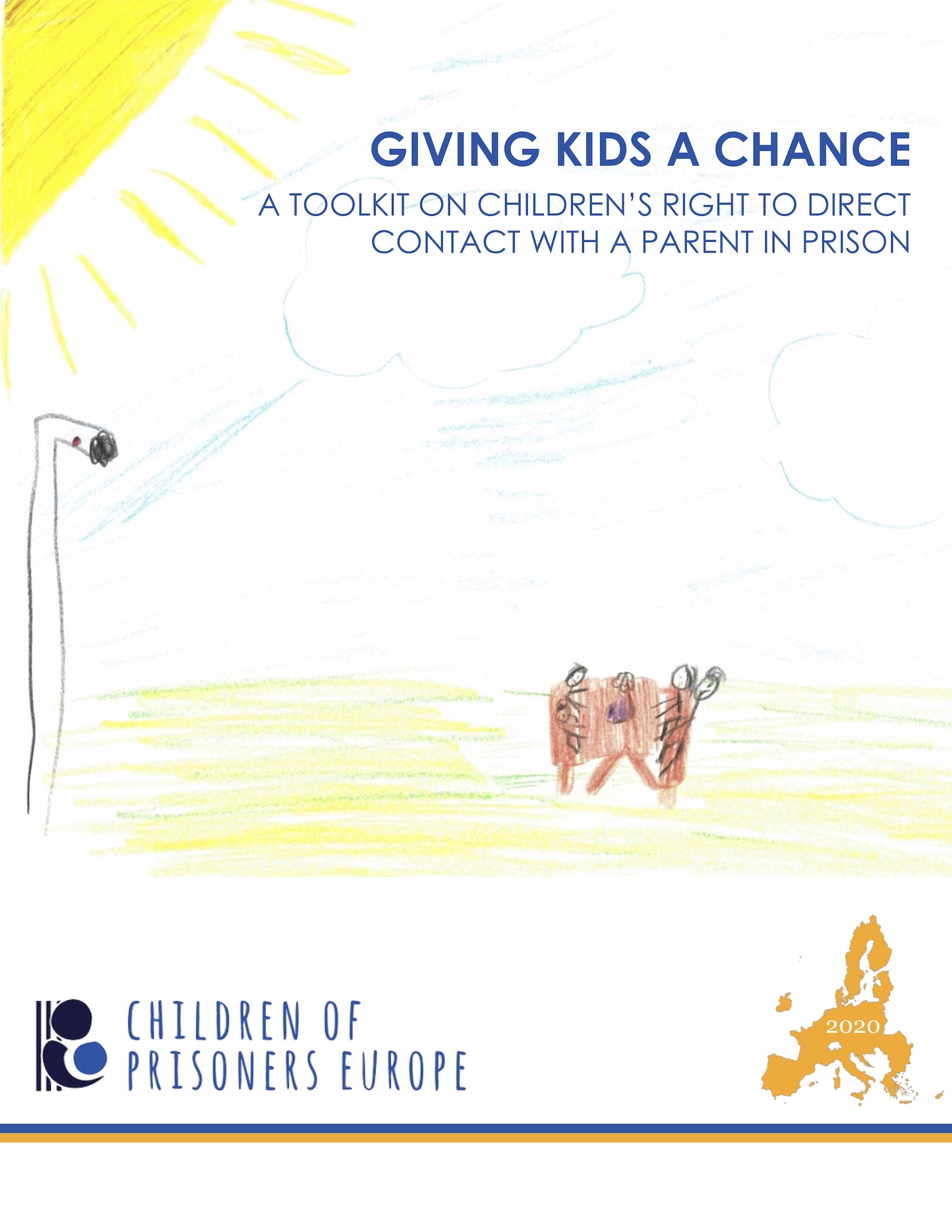A toolkit on children’s right to direct contact with a parent in prison

Child psychologists, social workers, researchers and other child welfare professionals are in consensus that the imprisonment of a parent can have long-lasting adverse consequences on the lives of children when they are not supported, and that reasonable steps should be taken to help mitigate the harm of child-parent separation.
Direct contact between a child and their imprisoned parent when in the best interests of the child is one of several crucial means of support for children impacted by parental imprisonment, alongside the provision of financial support and alternatives to imprisonment, such as non-custodial home detention and community service.
This toolkit presents legislation outlining children’s right to maintain contact with their parent in prison, while also acknowledging the challenges of and responses to the COVID-19 pandemic. Pandemic restriction measures led to the cancellation of in-person visits across the majority of jurisdictions. The pandemic had a clear impact on the wellbeing of children and families with a loved one in prison, which is explored in this toolkit. Examples of good practice are provided to alleviate the stress children can experience when they have a parent in prison and are unable to visit.
The COVID-19 pandemic reinforced the importance of child-parent contact when a parent is in prison and encouraged the development of alternative practices to fill the gaps left by the lack of in-person visits. Several lessons were learned in terms of improving child-parent contact and supporting the rights and wellbeing of children with a parent in prison.

